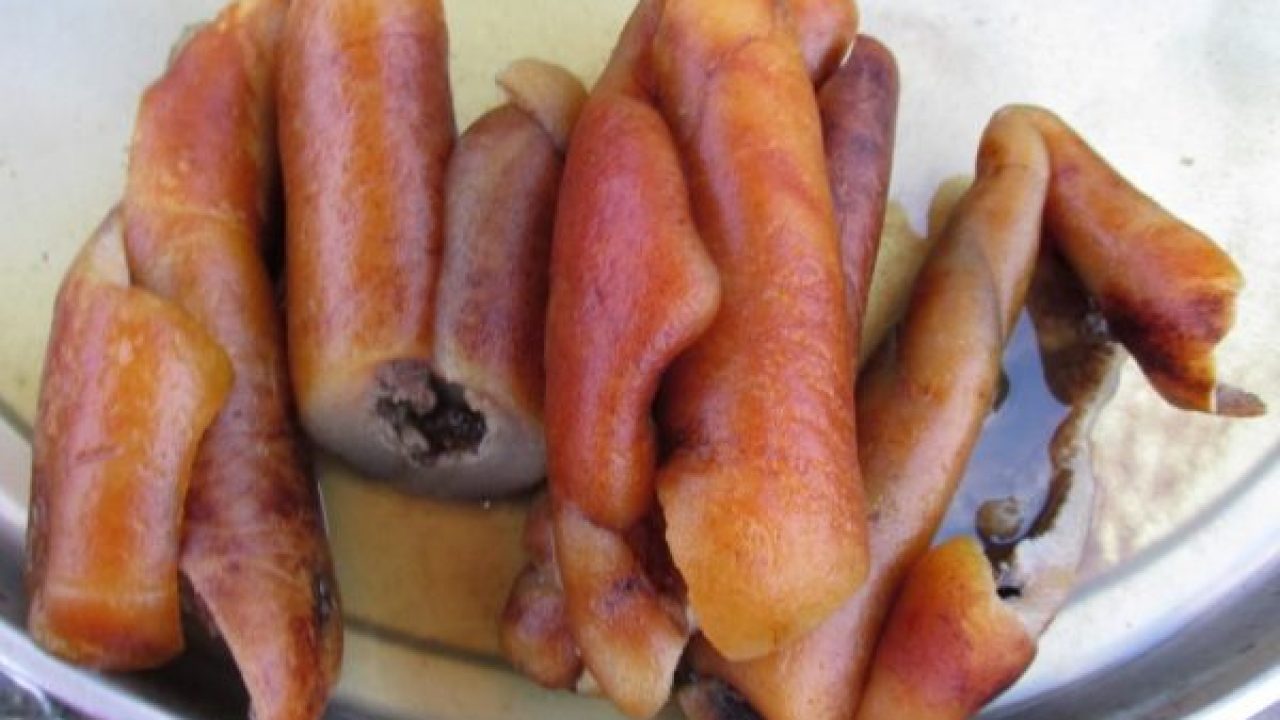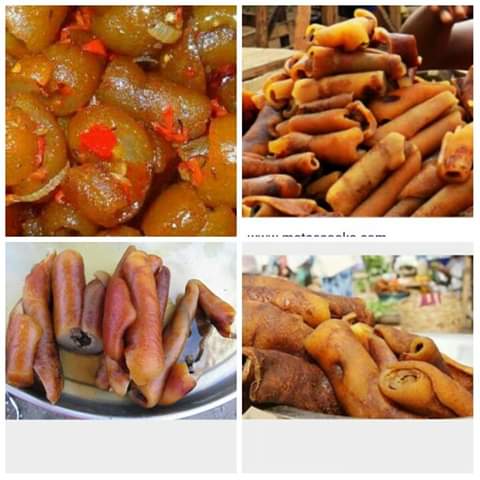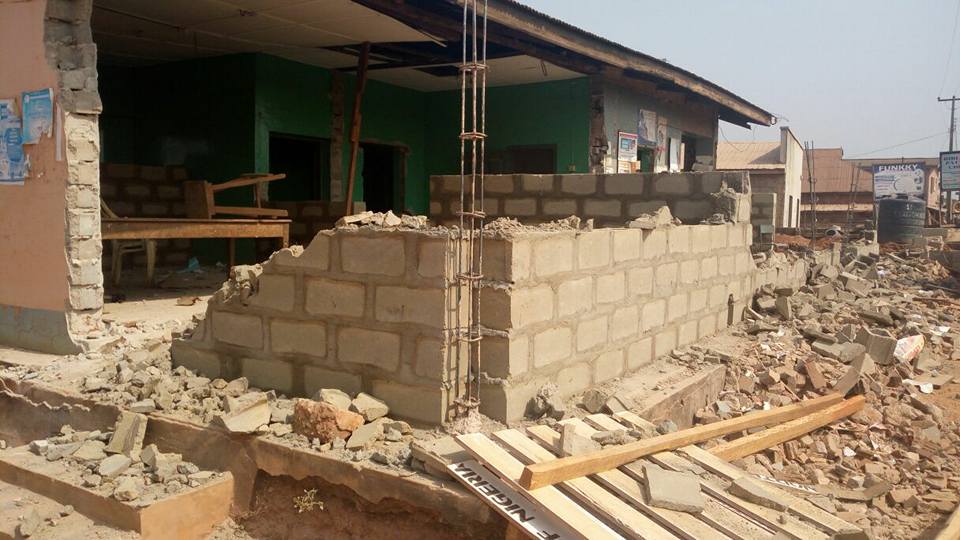Feature/OPED
The Economics of Nigerians Destroying Nigeria: Seeking Help of the Divider-in-Chief
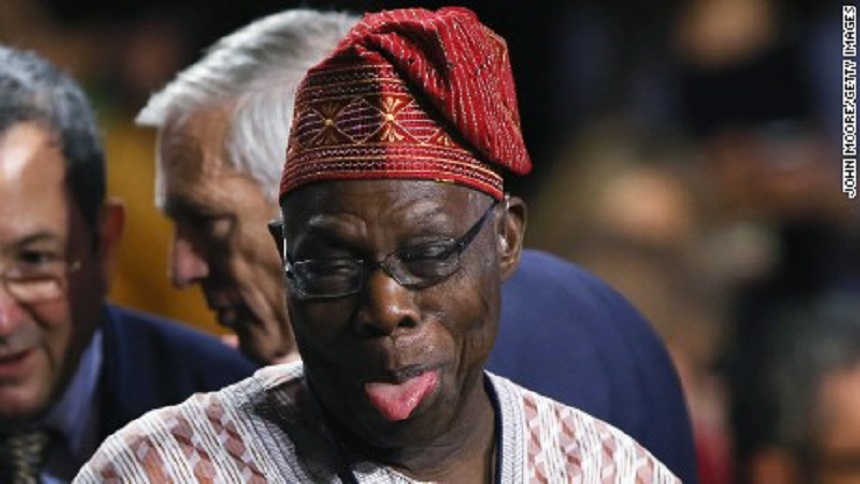
By Oremade Oyedeji
In one of my previous articles published a few months back titled Pandemic of the Prodigal Generation, I predicted that Nigeria’s politics will reset to align with the coming post-pandemic changes in world political thought and the balance of power.
This is because it is no longer business as usual. Pretty much is former president Olusegun Obabsanjo shaking things up with his comments and captioned in news headlines like Nigeria is a fail state. I strongly encourage former President Goodluck Jonathan to follow suit.
In response to his comments, I saw this screaming headline on the internet (Vanguard) Buhari prevented Nigeria from becoming failed state, Obasanjo now divider-in-chief — Lai Mohammed on September 14, 2020. Seeing this headline, I couldn’t but laugh in Chinese 大笑Dà xiào.
Speaking through the Minister of Information, the presidency challenged former President Obasanjo to help in proffering solutions to the problems plaguing the country instead of being Nigeria’s Divider-in-Chief. (Me: at least they are now asking for help).
The Minister claimed that President Muhammadu Buhari’s assumption of office in 2015 prevented Nigeria from becoming a failed state.
Hmmm… anyways, it is still the same old Economics or Buharinomics they now call it – same old stories if you ask me.. Who will love Nigeria better if not this same Divider-in-Chief?
There is an African adage that says Ogbon die Omugo die ohun ni Oba fi nto ilu (meaning: little wisdom mixed with little foolishness is how a king builds the city). I rest my case.
Talking of the old story of Economics, we have heard of how a former CBN Governor turned a town hall meeting into an Economics 101 class even in the presence of top professionals including a renowned World Bank expert, Mrs Ngozi Okonjo–Iweala.
I knew there is a problem, same old story where Lamido Sanusi Lamido at his time as CBN chief (another example) said Nigerians are eating up the GDP through the consumption of ponmo (cow skin) delicacy. At that point, I knew all these professors have all run out of ideas; they are all speaking big grammar.
Ponmo is a commercially run trade and is probably employing over two million women in the distribution chain in western Nigeria alone and a whole agriculture and butchery ecosystem in Ijebu Igbo. For some to say this trade is not adding to the GDP, I beg to differ.
“We produce cotton, we import textiles. We have hides and skin but we import shoes and bags from China. Not that we don’t kill the cattle, but what do we do with the leather? We eat ponmo. It is a delicacy; we consume our GDP,” the deposed Emir of Kano was quoted as saying.
Same old Economics and please tell me, must we destroy the trades done by over two million women or the thriving butchery business in Ijebu Igbo or the agriculture ecosystem for the leather industry so as to grow Nigeria’s GDP? Walahi, this life no balance o; same old story if you ask me, I am beginning to believe this is their “hate & love” for Nigeria and a desperate attempt to hold on to power again. No wonder anyone with a solution for Nigeria is now the Divider-in-Chief. Nigeria I hail o.
Contrary to the Minister of Information comment, the Daily Times recently said in one of its headlines on September 7, 2020, that Nigeria’s economy is collapsing — Yemi Osinbajo.
On Monday, our dear Vice President, Prof. Yemi Osinbajo, said the coronavirus pandemic has diminished revenue and foreign-exchange earnings in the country.
I even want to ask, what exactly is the problem of Nigeria; is it foreign debt to GDP ratio, revenue to GDP or is Nigeria officially a fail state really?
In summary, the higher the debt-to-GDP ratio, the less likely the country will pay back its debt and the higher its risk of default.
A study by the World Bank said if the debt-to-GDP ratio of a country exceeds 77 per cent for an extended period of time, it slows economic growth.
Okay, let us understand it from Nigeria’s six geopolitical zones or the federating states. Who among them is a debtor and who among them will meet its debt obligation? Simple Economics you say.
An African adage says Olowo kan larin atoshi mefa atoshi ni gbogbo won (meaning, a rich man among six poor men is also poor).
In fact, we need more Dividers-in-Chief to speak up, I am appointing myself as P.A to the Divider-in-Chief and it will be a great honour.
The Debt Management Office (DMO) listed Nigeria’s debts to World Bank, AfDB, China, Germany, and others on September 13, 2020. Nigeria’s highest external debt stock to a multilateral or bilateral financial institution is $10.46 billion (N3.965 trillion at the official rate of N379/$) and it is to the World Bank Group and it associates including: International Development Association ($10.05 billion) and International Bank for Reconstruction and Development ($409.51 million).
Nigeria’s total indebtedness to the multilateral institutions during the period under review was put at $16.36 billion, representing 51.97 per cent of the country’s total external debt stock.
The DMO put the country’s indebtedness to the AfDB Group at $5.896 billion.
Others are Arab Bank for Economic Development in Africa ($5.88 million), European Development Fund ($52.52 million), Islamic Development Bank ($30.22 million) and International Fund for Agricultural Development ($201.68 million).
Further analysis of the country’s external debts showed that Nigeria’s total indebtedness to some bilateral organisations, which in this case include foreign nations, was $3.948bn as of June 30.
This alone represents 12.54 per cent of the country’s entire $31.477 billion external debt stock during the period under review.
Nigeria’s indebtedness to China (Exim Bank of China) was $3.24 billion, while its debt to France (Agence Francaise Development) was $403.65 million.
The country’s debt to Japan (Japan International Corporation Agency) was $76.69 million, while Nigeria owes India (Exim Bank of India) $34.87 million. Nigeria also owes Germany $192.7 million.
Still under Nigeria’s external debt stock as of June 30, the DMO put the country’s Eurobonds at $10.87 billion, while its Diaspora Bond was $300 million.
Eurobond and Diaspora Bond are commercial external debt stock and account for $11.168 billion, representing 35.48 per cent of the country’s external debt stock.
Is Nigeria A failed state?
As contained in the Medium-Term Expenditure Framework and Fiscal Strategy (MTEF/FSP) report recently released by the Federal Ministry of Finance, Budget, and National Planning, Nigeria’s debts reached a new milestone with the country’s debt service as a percentage of revenue rising to 99 per cent in the first quarter of 2020.
A cursory review of the data obtained from the MTEF/FSP report showed that in Q1 2020, Nigeria paid N943.12 billion to service its debts (interest on the loans) while the federal government retained revenue was put at N950.56 billion. This means Nigeria’s debt service to revenue is now 99 per cent, meaning for every N100 the country generated as revenue, it used N99 to pay interest.
The continued depletion in Nigeria’s revenue is raising questions around the solvency of the Nigerian economy. Generally, debt sustainability can be explained using either debt to GDP or debt service to revenue ratio. With these yardsticks, Nigeria’s total public debt is below 30 per cent of GDP. The reality is that, debt-to-GDP is not regarded as the best indicator of debt sustainability, especially in Nigeria where tax-to-GDP is low.
For Nigeria, a better indicator of debt sustainability is the debt service-to-revenue ratio, which has in recent years risen to worrying levels, and now 99 per cent as at Q1 2020. Did I hear you say Buharinomics?
Let conclude this article on a lighter note, with a line from a late Abeokuta born musician, Fela Anikulapo-Kuti.
♫ ♬.. When we dey pikin – FATHA/MAMA BE TEACHER
When we they for school – TEACHER BE TEACHER
Now dey University – LECTURER BE TEACHER
When we start to work – GOVERMENT BE TEACHER
♫ “Who be Government Teacher ♫ ♬.. CU-ULTURE AND TRADITION – Cu-ulture and Tradition♬.
Facts about ancient Ijebu Igbo Town
1 – Ijebu Igbo is the home to ponmo Ijebu. The town has over 30 ponmo making industries known as buka, employing thousands of men and women. Ijebu Igbo is the major supplier of ponmo to over 20 million consumers of the delicacy living in Lagos, Oyo and Ogun States.
2 – Ijebu Igbo is the home of cow meat and the town is one of the originators of butcher business locally called alapata. Ijebu Igbo is one of the major distributors of cow meat to Epe, Aja, Sagamu and all other towns within and around Ijebu land with around 40 million people.
People come from most parts of the country to buy cow meat in Ijebu igbo because it is blessed with professional butchers. Butchery is a proud profession of men who provide food for their families in Ijebu Igbo.
3 – Ijebu Igbo has an agricultural ecosystem and is the second largest town in Ogun State in terms of GDP and landmass. The land is arable for farming. There are hundreds of towns, villages and hamlets under Ijebu Igbo and there major occupation is farming and they depend on organic wastes from the town.
Feature/OPED
After the Capital Rush: Who Really Wins Nigeria’s Bank Recapitalisation?
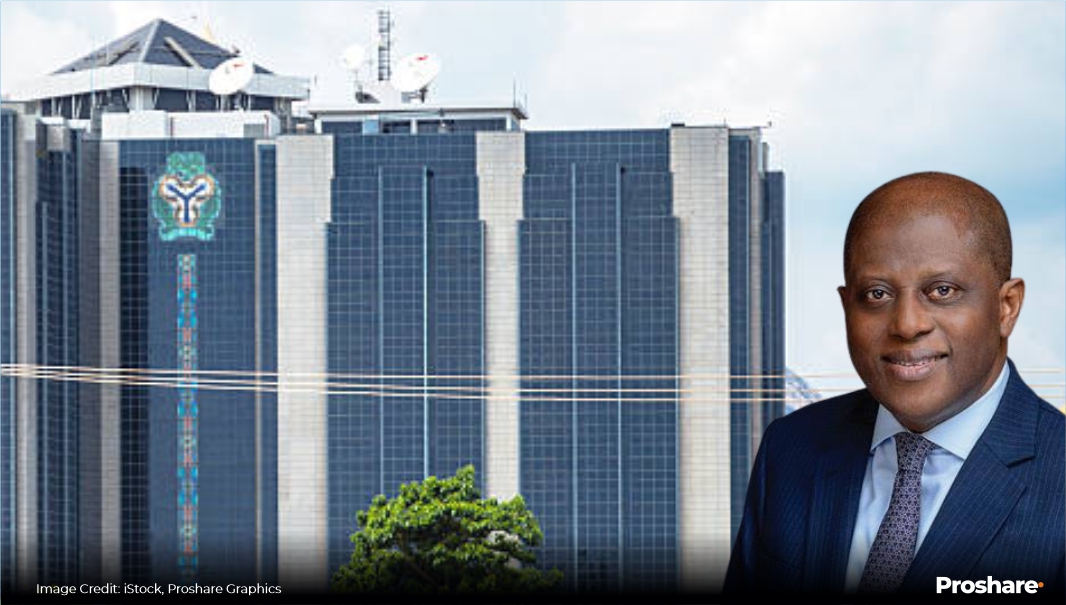
By Blaise Udunze
By any standard, Nigeria’s ongoing bank recapitalisation exercise is one of the most consequential financial sector reforms since the 2004-2005 consolidation that shrank the number of banks from 89 to 25. Then, as now, the stated objective was stability to have stronger balance sheets, better shock absorption, and banks capable of financing long-term economic growth.
The Central Bank of Nigeria (CBN), in 2024, mandated a sweeping recapitalisation exercise compelling banks to raise substantially higher capital bases depending on their license categories. The categorisation mandated that every Tier-1 deposit money bank with international authorization is to warehouse N500 billion minimum capital base, and a national bank must have N200 billion, while a regional bank must have N50 billion by the deadline of 31st March 2026. According to the apex bank, the objectives were to strengthen resilience, create a more robust buffer against shocks, and position Nigerian banks as global competitors capable of funding a $1 trillion economy.
But in the thick of the race to comply and as the dust gradually settles, a far bigger conversation has emerged, one that cuts to the heart of how our banking system works. What will the aftermath of recapitalisation mean for Nigeria’s banking landscape, financial inclusion agenda, and real-sector development?
Beyond the headlines of rights issues, private placements, and billionaire founders boosting stakes, every Nigerians deserve a sober assessment of what has changed, and what still must change, if recapitalisation is to translate into a genuinely improved banking system.
The points are who benefits most from its evolution, and whether ordinary Nigerians will feel the promised transformation in their everyday financial lives, because history has taught us that recapitalisation is never a neutral policy. The fact remains that recapitalization creates winners and losers, restructures incentives, and often leads to unintended outcomes that outlive the reform itself.
Concentration Risk: When the Big Get Bigger
Recapitalisation is meant to make banks stronger, and at the same time, it risks making them fewer and bigger, concentrating power and risks in an ever-narrowing circle. Nigeria’s Tier-1 banks, those already controlling roughly 70 percent of banking assets, are poised to expand further in both balance sheet size and market influence. This deepens the divide between the “haves” and “have-nots” within the sector.
A critical fallout of this exercise has been the acceleration of consolidation. Stronger banks with ready access to capital markets, like Access Holdings and Zenith Bank, have managed to meet or exceed the new thresholds early by raising funds through rights issues and public offerings. Access Bank boosted its capital to nearly N595 billion, and Zenith Bank to about N615 billion.
In contrast, banks that lack deep pockets or the ability to quickly mobilise investors are lagging. The results always show that the biggest banks raise capital faster and cheaper, while smaller banks struggle to keep pace.
As of mid-2025, fewer than 14 of Nigeria’s 24 commercial banks met the required capital base, meaning a significant number were still scrambling, turning to rights issues, private placements, mergers, and even licensing downgrades to survive.
The danger here is not merely numerical. It is systemic: as capital becomes more concentrated, the banking system could inadvertently mimic oligopolistic tendencies, reducing competition, narrowing choices for customers, and potentially heightening systemic risk should one of these “too-big-to-fail” institutions falter.
Capital Flight or Strategic Expansion? The Foreign Subsidiary Question
One of the most contentious aspects of the recapitalisation aftermath has been the deployment of newly raised capital, especially its use outside Nigeria. Several banks, flush with liquidity from rights issues and injections, have signalled or executed investments in foreign subsidiaries and expansions abroad, like what we are experiencing with Nigerian banks spreading their tentacles to the Ivory Coast, Ghana, Kenya, and beyond. Zenith Bank’s planned expansion into the Ivory Coast exemplifies this outward push.
While international diversification can be a sound strategic move for multinational banks, there is an uncomfortable optics and developmental question here: why is Nigerian money being deployed abroad when millions of Nigerians remain unbanked or underbanked at home?
According to the World Bank, a large number of Nigeria’s adult population still lack access to formal financial services, while millions of SMEs, micro-entrepreneurs, and rural households remain on the edge, underserved by traditional banks that now chase profitability and scale.
Of a truth, redirecting Nigerian capital to foreign markets may deliver shareholder returns, but it does little in the short term to advance domestic financial inclusion, poverty reduction, or grassroots economic participation. The optics of capital flight, even when legal and strategic, demand scrutiny, especially in a nation still struggling with deep regional and demographic disparities.
Impact on Credit and the Real Economy
For the ordinary Nigerian, the most important question is simple: will recapitalisation make credit cheaper and more accessible?
History suggests the answer is not automatic. The tradition in Nigeria’s bank system is mainly to protect returns, and for this reason, many banks respond to higher capital requirements by tightening lending standards, raising interest rates, or focusing on low-risk government securities rather than private-sector loans, because raising capital is expensive, and banks are profit-driven institutions. Small and medium-sized enterprises (SMEs), often described as the engine of growth, are usually the first casualties of such risk aversion.
If recapitalisation results in stronger balance sheets but weaker lending to the real economy, then its benefits remain largely cosmetic. The economy does not grow on capital adequacy ratios alone; it grows when banks take measured risks to finance production, innovation, and consumption.
Retail Banking Retreat: Handing the Mass Market to Fintechs?
In recent years, we have witnessed one of the most striking shifts, or a gradual retreat of traditional banks from mass retail banking, particularly low-income and informal customers.
The question running through the hearts of many is whether Nigerian banks are retreating from retail banking, leaving space for fintech disruptors to fill the void.
In recent years, players like OPAY, Moniepoint, Palmpay, and a host of digital financial services arms have become de facto retail banking platforms for millions of Nigerians. They provide everyday payment services, wallet functionalities, micro-loans, and QR-enabled commerce, areas traditional banks once dominated. This trend has accelerated as banks chase corporate clients where margins are higher and risk profiles perceived as more manageable. The true picture of the financial landscape today is that the fintechs own the retail space, and banks dominate corporate and institutional finance. But it is unclear or uncertain if this model can continue to work effectively in the long term.
Despite the areas in which the Fintechs excel, whether in agility, product innovation, and customer experience, they still rely heavily on underlying banking infrastructure for liquidity, settlement, and regulatory compliance. Should the retail banking ecosystem become split between digital wallets and corporate corridors, rather than being vertically integrated within banks, systemic liquidity dynamics and financial stability could be affected.
Nigerians deserve a banking system where the comforts and conveniences of digital finance are backed by the stability, regulatory oversight, and capital strength of licensed banks, not a system where traditional banks withdraw from retail, leaving unregulated or lightly regulated players to carry that mantle.
Corporate Governance: When Founders Tighten Their Grip
The recapitalisation exercise has not been merely a technical capital-raising exercise; it has become a theatre of power plays at the top. In several banks, founders and major investors have used the exercise to increase their stakes, concentrating ownership even as they extol the virtues of financial resilience.
Prominent founders, from Tony Elumelu at UBA to Femi Otedola at First Holdco and Jim Ovia at Zenith Bank, have all been actively increasing their shareholdings. These moves raise legitimate questions about corporate governance when founders increase control during a regulatory exercise. Are they driven by confidence in their institutions, or are they fortifying personal and strategic influence amid industry restructuring?
Though there might be nothing inherently wrong with founders or shareholders demonstrating faith in their institutions, one fact remains that the governance challenge lies not simply in who holds the shares, but how decisions are made and whose interests are prioritised. Will banks maintain robust internal checks and balances, ensuring that capital deployment aligns with national development goals? The question is whether the CBN is equipped with adequate supervisory bandwidth and tools to check potential excesses if emerging shareholder concentrations translate into undue influence or risks to financial stability. These are questions that transcend annual reports; they strike at the heart of trust in the system.
Regional Disparity in Lending: Lagos Is Not Nigeria
One of the persistent criticisms of Nigerian banking is regional lending inequality. It has been said that most bank loans are still overwhelmingly concentrated in Lagos and the Southwest, despite decades of financial deepening in this region; large swathes of the North, Southeast, and other underserved regions receive disproportionately smaller shares of credit. This imbalance not only undermines inclusive growth but also fuels perceptions of economic exclusion.
Recapitalisation, in theory, should have enhanced banks’ capacity to support broader economic activity. Yet, the reality remains that loans and advances are overwhelmingly concentrated in economic hubs like Lagos.
The CBN must deploy clear incentives and penalties to encourage geographic diversification of lending. This could include differentiated capital requirements, credit guarantees, or tax incentives tied to regional loan portfolios. A recapitalised banking system that does not finance national development is a missed opportunity.
Cybersecurity, Staff Welfare, and the Technology Deficit
Beyond balance sheets and brand expansion, there is a human and technological dimension to the banking sector’s challenge. Fraud remains rampant, and one of the leading frustrations voiced by Nigerians involves failed transactions, delayed reversals, and poor digital experience. Banks can raise capital, but if they fail to invest heavily in cybersecurity, fraud detection, staff training, and welfare, the everyday customer will continue to view the banking system as unreliable.
Nigeria’s fintech revolution has thrived precisely because it has pushed incumbents to become more customer-centric, agile, and tech-savvy. If banks now flush with capital don’t channel a portion of those funds into robust IT systems, workforce development, fraud mitigation, and seamless customer service, then the recapitalisation will have achieved little beyond stronger balance sheets. In short, Nigerians should feel the difference, not merely in stock prices and market capitalisation, but in smooth banking apps, instant reversals, responsive customer care, and secure platforms.
The Banks Left Behind: Mergers, Failures, or Forced Restructuring?
With fewer than half the banks having fully complied with the recapitalisation requirements deep into 2025, a pressing question is: what awaits those that lag? Many banks are still closing capital gaps that run into hundreds of billions of naira. According to industry estimates, the total recapitalisation gap across the sector could reach as much as N4.7 trillion if all requirements are strictly enforced.
Banks that fail to meet the March 2026 deadline face a few options:
– Forced M&A. Regulators could effectively compel weaker banks to merge with stronger ones, echoing the consolidation wave of 2005 that reduced the sector from 89 to 25 banks.
– License downgrades or conversions. Some banks may choose to operate at a lower license category that demands a smaller capital base.
– Exits or closures. In extreme cases, banks that can neither raise capital nor find a merger partner might be forced out of the market.
This regulatory pressure should not be construed merely as punitive. It is part of the CBN’s broader architecture of ensuring that only solvent, well-capitalised, and risk-prepared institutions operate. However, the transition must be managed carefully to prevent contagion, protect depositors, and preserve confidence.
Why Are Tier-1 Banks Still Chasing Capital?
Perhaps the most intriguing puzzle is why some Tier-1 banks, long regarded as strong and profitable, are aggressively raising capital. Even banks thought to be among the strongest, such as UBA, First Holdco, Fidelity, GTCO, and FCMB, have struggled to close their capital gaps. UBA, for instance, succeeded in raising around N355 billion toward its N500 billion target at one point and planned additional rights issues to bridge the remainder.
This reveals another reality that capital is not just numbers on paper; it is investor confidence, market appetite, and macroeconomic stability.
One can also say that the answer lies partly in ambition to expand into new markets, infrastructure financing, and compliance with stricter global standards.
However, it also reflects deeper structural pressures, including currency depreciation eroding capital, rising non-performing loans, and the substantial funding required to support Nigeria’s development needs. Even giants are discovering that yesterday’s capital is no longer sufficient for tomorrow’s challenges.
Reform Without Deception
As the Nigerian banking sector recapitalization exercise comes to a close by March 31, 2026, the ultimate test will be whether the reforms deliver on their transformational promise.
Some of the concerns in the minds of Nigerians today will be to see a system that supports inclusive growth, equitable credit distribution, world-class customer service, and resilient financial intermediation. Or will we see a sector that, despite larger capital bases, still reflects old hierarchies, geographic biases, and operational friction? The cynic might say that recapitalisation simply made big banks bigger and empowered dominant shareholders.
But a more hopeful perspective invites stakeholders, including regulators, customers, civil society, and bankers themselves, to co-design the next chapter of Nigerian banking; one that balances scale with inclusion, profitability with impact, and stability with innovation. The difference will be made not by press releases or shareholder announcements, but by deliberate regulatory action and measurable improvements in how banks serve the economy.
For now, the capital has been raised, but the true capital that counts is the confidence Nigerians place in their banks every time they log into an app, make a transfer, or deposit their life’s savings. Only when that trust is visible in everyday experience can we say that recapitalisation has truly succeeded.
Blaise, a journalist and PR professional, writes from Lagos and can be reached via: [email protected]
Feature/OPED
Ledig at One: The Year We Turned Stablecoins Into Real Liquidity for the Real World
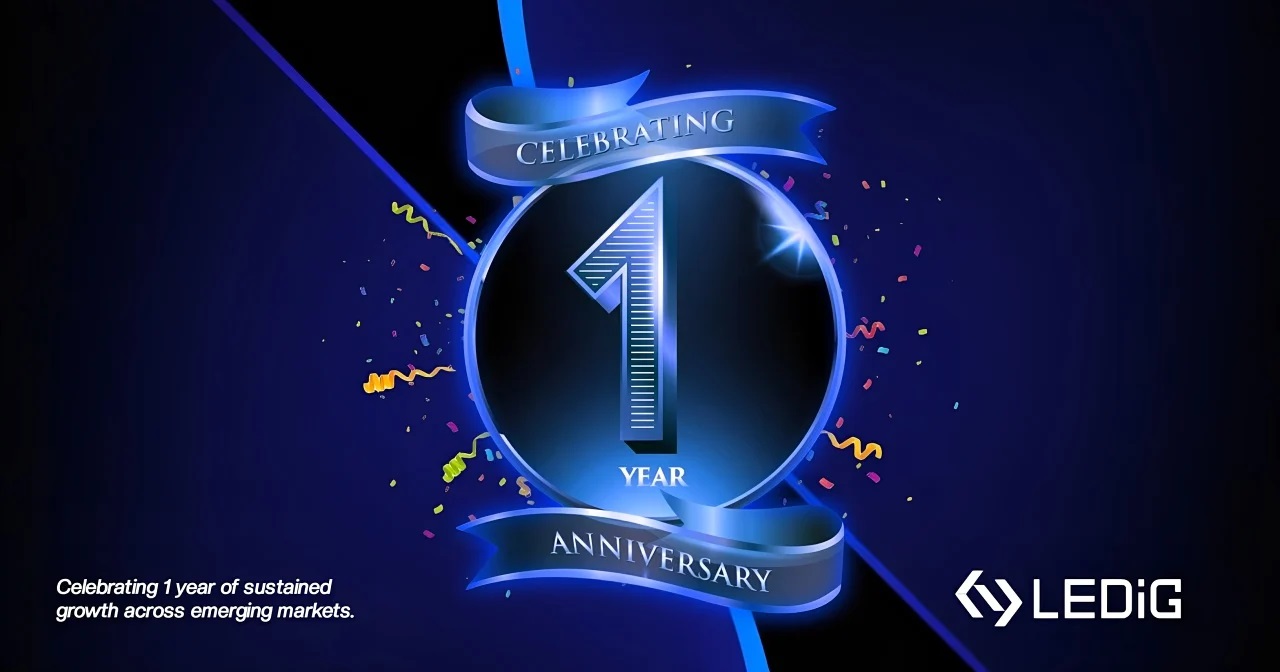
Ever tried sending a large amount of money into or out of certain markets and felt your stomach twist a bit? That was the feeling many companies carried long before Ledig existed. Delays. Guesswork. Phone calls that sounded unsure. People waiting on people, and no reliable derivatives hedging protocol to shield them from currency swings. It was messy.
That frustration is what pushed us to open Ledig to the world a year ago. We wanted a system built for big transfers. Not a few hundred dollars. Serious amounts. A hundred thousand. A million. Even more. And we wanted it to move in seconds, not a strange timeline that no one could explain.
So, we built a setup that lets companies bring in stablecoins and get local currency out quickly. We also kept the opposite direction just as clean. Local currency in, stablecoins out. Both ways needed to feel the same because business doesn’t move in only one direction. Some clients even switch between the two during the same week.
In the early days, people sent smaller amounts to test us. Fair enough. But once they saw a large payment settle almost instantly, confidence spread. This is how we crossed our first $100M. Most of that came from global companies working across Africa and other emerging markets. These firms care about stability, not buzzwords. They just want their money to land where it should.
A lot of the magic sits behind the scenes. Wallets. Local settlement tools. A solid FX engine that adjusts as needed. None of this appears on the surface. All a user sees is a simple dashboard or a set of API calls that get the job done. They don’t even need to think about crypto. The tech exists under the hood, doing the heavy lifting quietly.
But fast movement alone wasn’t enough.
Ledig derivatives hedging protocol
There was another problem staring companies in the face. Currency swings. And they hurt. Imagine finishing a project today and waiting ninety days to get paid in a currency that drops often. By the time the company receives the money, the value has fallen so much that the profit is almost gone. This is a real issue, and many firms have lived through that shock.
This is where our derivatives hedging protocol stepped in. It lets companies lock in their value early so they don’t get caught off guard later. The product ran off-chain at first and still passed $55M in activity. Now we’re taking the derivatives hedging protocol fully on-chain. We picked Base for this next step because it fits the type of stablecoins our settlement system relies on. It also gives companies a clean, transparent environment to execute derivatives hedging protocol strategies built for actual commercial needs rather than trading games.
It took time to get here. Our team is small, which surprised a lot of people, but that worked in our favour. We avoided noise. We focused on building pieces that work. Think of it like a set of tools. One tool converts stable to fiat. Another handles fiat to stable. Another manages FX. Another supports treasury. Another delivers hedging to protect value. Each tool works alone, but when a company puts them together, they get a full workbench that covers money movement and risk in one place.
We rarely talk about revenue publicly, but the business is in a good place. The real sign of health is that companies keep trusting us with large transactions. Not one-off tests. Proper flows. The kind that supports payrolls, suppliers, expansion, and daily operations. In markets where delays can break everything, this matters.
Looking ahead, our focus for 2026 is simple. Bring the derivatives hedging protocol on-chain at scale. Grow our liquidity pipeline so larger payments stay just as smooth as they are today. Strengthen our licensing and regulatory setup, so bigger institutions can work with us without extra steps. And continue tightening the entire system so companies entering emerging markets can do it with far less stress.
Ledig is one year old. The mission is still the same. Move large amounts of money fast. Protect companies from painful currency swings using a battle-tested derivatives hedging protocol. Build tools they can rely on without worrying about how the background tech works.
This is just the beginning.
Feature/OPED
If You Understand Nigeria, You Fit Craze
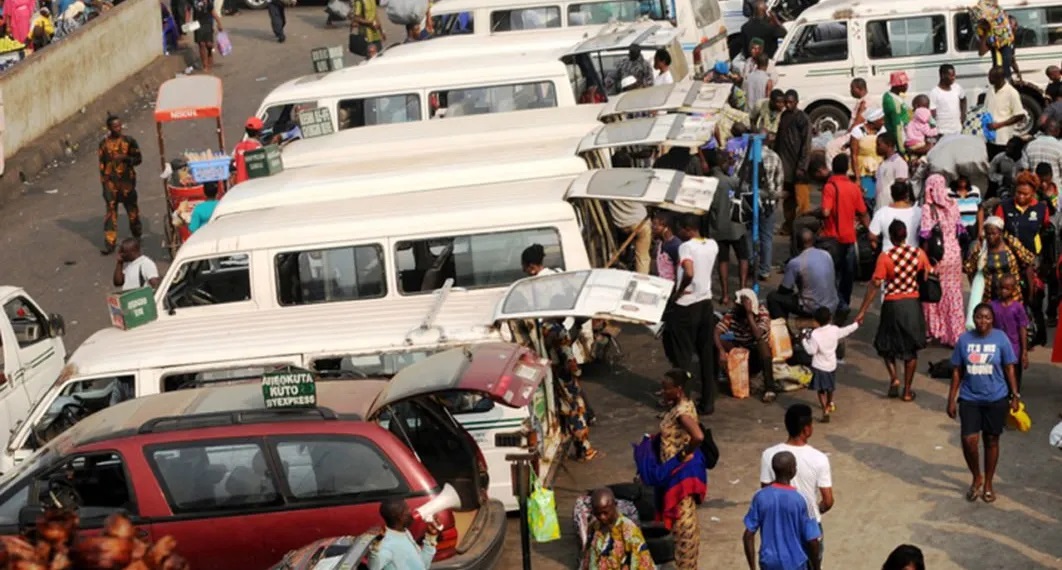
By Prince Charles Dickson PhD
There is a popular Nigerian lingo cum proverb that has graduated from street humour to philosophical thesis: “If dem explain Nigeria give you and you understand am, you fit craze.” It sounds funny. It is funny. But like most Nigerian jokes, it is also dangerously accurate.
Catherine’s story from Kubwa Road is the kind of thing that does not need embellishment. Nigeria already embellishes itself. Picture this: a pedestrian bridge built for pedestrians. A bridge whose sole job description in life is to allow human beings cross a deadly highway without dying. And yet, under this very bridge, pedestrians are crossing the road. Not illegally on their own this time, but with the active assistance of a uniformed Road Safety officer who stops traffic so that people can jaywalk under a bridge built to stop jaywalking.
At that point, sanity resigns.
You expect the officer to enforce the law: “Use the bridge.” Instead, he enforces survival: “Let nobody die today.” And therein lies the Nigerian paradox. The officer is not wicked. In fact, he is humane. He chooses immediate life over abstract order. But his humanity quietly murders the system. His kindness baptises lawlessness. His good intention tells the pedestrian: you are right; the bridge is optional.
Nigeria is full of such tragic kindness.
We build systems and then emotionally sabotage them. We complain about lack of infrastructure, but when infrastructure shows up, we treat it like an optional suggestion. Pedestrian bridges become decorative monuments. Traffic lights become Christmas decorations. Zebra crossings become modern art—beautiful, symbolic, and useless.
Ask the pedestrians why they won’t use the bridge and you’ll hear a sermon:
“It’s too stressful to climb.”
“It’s far from my bus stop.”
“My knee dey pain me.”
“I no get time.”
“Thieves dey up there.”
All valid explanations. None a justification. Because the same person that cannot climb a bridge will sprint across ten lanes of oncoming traffic with Olympic-level agility. Suddenly, arthritis respects urgency.
But Nigeria does not punish inconsistency; it rewards it.
So, the Road Safety officer becomes a moral hostage. Arrest the pedestrians and risk chaos, insults, possible mob action, and a viral video titled “FRSC wickedness.” Or stop cars, save lives, and quietly train people that rules are flexible when enough people ignore them.
Nigeria often chooses the short-term good that destroys the long-term future.
And that is why understanding Nigeria is a psychiatric risk.
This paradox does not stop at Kubwa Road. It is a national operating system.
We live in a country where a polite policeman shocks you. A truthful politician is treated like folklore—“what-God-cannot-do-does-exist.” A nurse or doctor going one year without strike becomes breaking news. Bandits negotiate peace deals with rifles slung over their shoulders, attend dialogue meetings fully armed, and sometimes do TikTok videos of ransoms like content creators.
Criminals have better PR than institutions.
In Nigeria, you bribe to get WAEC “special centre,” bribe to gain university admission, bribe to choose your state of origin for NYSC, and bribe to secure a job. Merit is shy. Connection is confident. Talent waits outside while mediocrity walks in through the back door shaking hands.
You even bribe to eat food at social events. Not metaphorically. Literally. You must “know somebody” to access rice and small chops at a wedding you were invited to. At burial grounds, you need connections to bury your dead with dignity. Even grief has gatekeepers.
We have normalised the absurd so thoroughly that questioning it feels rude.
And yet, the same Nigerians will shout political slogans with full lungs—“Tinubu! Tinubu!!”—without knowing the name of their councillor, councillor’s office, or councillor’s phone number. National politics is theatre; local governance is invisible. We debate presidency like Premier League fans but cannot locate the people controlling our drainage, primary schools, markets, and roads.
We scream about “bad leadership” in Abuja while ignoring the rot at the ward level where leadership is close enough to knock on your door.
Nigeria is a place where laws exist, but enforcement negotiates moods. Where rules are firm until they meet familiarity. Where morality is elastic and context-dependent. Where being honest is admirable but being foolish is unforgivable.
We admire sharpness more than integrity. We celebrate “sense” even when sense means cheating the system. If you obey the rules and suffer, you are naïve. If you break them and succeed, you are smart.
So, the Road Safety officer on Kubwa Road is not an anomaly. He is Nigeria distilled.
Nigeria teaches you to survive first and reform later—except later never comes.
We choose convenience over consistency. Emotion over institution. Today over tomorrow. Life over law, until life itself becomes cheap because law has been weakened.
This is how bridges become irrelevant. This is how systems decay. This is how exceptions swallow rules.
And then we wonder why nothing works.
The painful truth is this: Nigeria is not confusing because it lacks logic. It is confusing because it has too many competing logics. Survival logic. Moral logic. Emotional logic. Opportunistic logic. Religious logic. Tribal logic. Political logic. None fully dominant. All constantly clashing.
So, when someone says, “If dem explain Nigeria give you and you understand am, you fit craze,” what they really mean is this: Nigeria is not designed to be understood; it is designed to be endured.
To truly understand Nigeria is to accept contradictions without resolution. To watch bridges built and ignored. Laws written and suspended. Criminals empowered and victims lectured. To see good people make bad choices for good reasons that produce bad outcomes.
And maybe the real madness is not understanding Nigeria—but understanding it and still hoping it will magically fix itself without deliberate, painful, collective change.
Until then, pedestrians will continue crossing under bridges, officers will keep stopping traffic to save lives, systems will keep eroding gently, and we will keep laughing at our own tragedy—because sometimes, laughter is the only therapy left.
Nigeria no be joke.
But if you no laugh, you go cry—May Nigeria win.
-

 Feature/OPED6 years ago
Feature/OPED6 years agoDavos was Different this year
-
Travel/Tourism9 years ago
Lagos Seals Western Lodge Hotel In Ikorodu
-

 Showbiz3 years ago
Showbiz3 years agoEstranged Lover Releases Videos of Empress Njamah Bathing
-

 Banking8 years ago
Banking8 years agoSort Codes of GTBank Branches in Nigeria
-

 Economy3 years ago
Economy3 years agoSubsidy Removal: CNG at N130 Per Litre Cheaper Than Petrol—IPMAN
-

 Banking3 years ago
Banking3 years agoFirst Bank Announces Planned Downtime
-

 Banking3 years ago
Banking3 years agoSort Codes of UBA Branches in Nigeria
-

 Sports3 years ago
Sports3 years agoHighest Paid Nigerian Footballer – How Much Do Nigerian Footballers Earn



